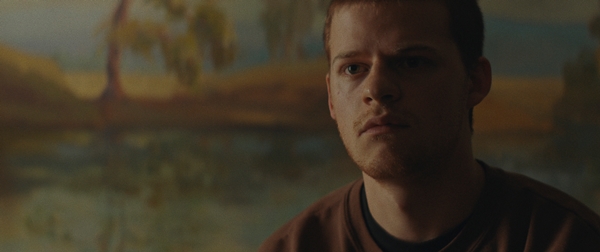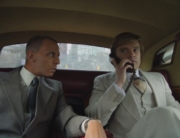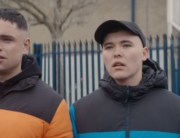
Is it of any use to an audience to know when a piece of art is autobiographical? Not in all cases, though in prose literature, autofiction has been the craze for much of the decade. Last year, Alfonso Cuarón made no secret that Roma was drawn from his childhood memories, and many reviewers, notably Anthony Lane, reviewed it as though it were a memory piece. This was a take that I found misleading when I got around to seeing the film, which struck me as a portrait of a certain person’s life at a certain time. Knowing that it bore any resemblance to its author’s life was largely irrelevant to appreciating the film.
Honey Boy, which Shia LaBeouf wrote and stars in, is also autobiographical, and it wants you to know it, ultimately to the film’s detriment. There are certainly poignant passages, but the film ultimately places too much faith in our engagement, knowing the film reflects the life of its screenwriter.
Honey Boy cuts back and forth between two time lines. One involves the main character as an adult (Lucas Hedges) as he enters rehab. In the other, he’s 12-year-old Otis (Noah Jupe), a rising child actor living in a low-income housing complex with his unstable father, James (LaBeouf), a recovering alcoholic.
The film is at its strongest in the world of childhood, where the cinematography creates an evocative sense of place and the actions sometimes weaves in and out of fantasy. There is not much plot. Most scenes concern the slow rise of tension between father and son.
James lashes out in jealousy when he feels a mentor from Big Brothers Big Sisters is taking his place. He controls and neglects his son, goes through several Alcoholics Anonymous meetings, gets mad, and gradually slides back into alcoholism —LaBeouf is striking, nuanced, and hard to look away from. Meanwhile, the son looks for connection with a young woman and neighbor (FKA twigs), turns to cigarettes, and tries to stand up for himself. It’s a long time before we actually see Otis on a film set, where the 12-year-old is strikingly articulate and good at standing up for himself.
The other section, though not without engaging moments, lacks impact. Essentially, it’s the story of Otis as an adult going through therapy and trying to come to terms with his father. The result is obvious and not very affecting. He struggles in the rehab clinic, lashes out at the people in charge, but eventually tackles his issues. Bizarrely, he’s the one person in rehab who has any difficulty confronting demons—everyone else seems like they could be at a community building spa. There are films that make watching someone go through therapy involving (Good Will Hunting, Ordinary People), but this one does little to distinguish itself. Almost everything here feels hollow and unspecific.
The film’s real misstep, however, is in the way the two story lines come together. I won’t describe it in great detail, other than to say that there’s a revelation that this film was made in order to process the actor/writer’s experience. A casual Google search will reveal that neither LaBeouf nor any producer or reviewer is making any secret of the film’s real-life origins. LaBeouf, in writing this final scene, assumes that knowing this information will render the film more poignant, but it makes it much more ridiculous. His story would have done well to simply speak for itself, without any meta-gestures toward the artist who made it.






Leave A Comment